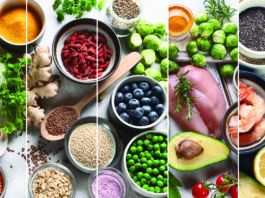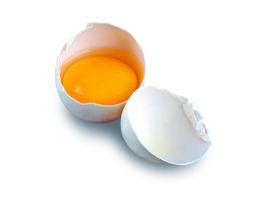Q: A friend recently suggested I take Greens First, which claims to have the...
Answer :Dehydrated, powdered, juiced and spraydried fruit and vegetable products can never deliver all the nutritional value of the original produce. Even if a product has the same amount of antioxidants and phytonutrients as a daily diet of fruits and vegetables, youre missing the fiber and other benefits of eating whole foods. Youre also not using fruits and vegetables to replace other, higher-calorie and high-fat foods in your diet. …
Q: I have heard that high heat destroys the healthy fats in nut oils;...
Answer :Youre correct that some nut oils have a low smoke point, the temperature at which they begin to burn. Unrefined walnut oil, for example, has a smoke point of only 320 degrees Fahrenheit, although refined walnut oil can go to about 400 degrees. Almond oil, by contrast, has a smoke point of 430 degrees. …
Q: I read the article How Safe Are Your Salad Greens? (December 2006 Healthletter)...
Answer :Nothing short of cooking will guarantee that E. coli on produce has been killed, but some research does suggest vinegar washing can reduce contamination of fresh produce. Research at the University of Nebraska led scientists there to recommend soaking produce in full-strength white vinegar for five minutes, stirring occasionally. Rinse with clean tap water to remove vinegar flavor. Wash only what you need immediately, as washing earlier could give remaining bacteria time to grow.…
Q: In your article on organics (October 2006 Healthletter) you make note that seafood...
Answer :Your question is an excellent example of how easy it is to get misled or confused by package labeling. Actually, on close inspection, it turns out that the label you enclosed with your question does not say organic. The USDA has yet to finalize certification standards for organic seafood, so the use of such a term on a seafood label would be meaningless in any case; producers are allowed to make whatever organic claims…
Q: I have heard that the greatest nutritional value of the apple is in...
Answer :Jeffrey B. Blumberg, PhD, director of the Antioxidants Research Laboratory at Tufts Jean Mayer USDA Human Nutrition Research Center on Aging, replies, There is certainly nutritional value in apple skin, as it contains a variety of phytochemicals (phytonutrients), particularly flavonoids. This is the case for the skin of most fruits and vegetables, as these compounds are phytoalexins (compounds protecting the plant from environmental stresses, like UV light, molds and insects) and so need to…
Q: I understand how to identify trans fats as partially hydrogenated. But I sometimes...
Answer :To understand the difference between partially and fully hydrogenated oils, youll need a short chemistry lesson-bear with us! In saturated fats, all the positions for hydrogen on the carbon atoms are filled. Monounsaturated fats have one pair of carbon atoms per chain that are connected to each other instead of to hydrogen atoms this carbon-carbon bond is thus unsaturated); so oleic acid, a monounsaturated fatty acid, which has 18 carbon atoms per chain, is…
Q: Which is fresher- vegetables canned soon after harvesting, frozen or so-called fresh as...
Answer :Theres no real scientific measure of freshness, but if you mean vegetables that are closest in nutrient content to freshly picked vegetables, the best bet is probably frozen produce. Alice H. Lichtenstein, DSc, Stanley N. Gershoff professor of nutrition science and policy at Tufts Friedman School, says, For the most part, frozen vegetables are processed close to the point of harvesting, and, unless thawed and refrozen prior to sale, should retain most of their…
Q: As a vegetarian, I am interested in the combination of fruits and vegetables...
Answer :Jeanne P. Goldberg, PhD, director of the Center on Nutrition Communication and the Nutrition Communication Program at Tufts Friedman School, answers, This is really not difficult. In general, vegetables and grains are better sources of protein than fruits. Single groups of plant foods typically do not contain all of the essential amino acids in the balance that the body needs them, but if you eat a variety you will get all you need. For…
Q: Ive read that calcium should be taken/ingested periodically during the day, as only...
Answer :Bess Dawson-Hughes, MD, professor of medicine at Tufts and chief of the Bone Metabolism Laboratory at the Jean Mayer USDA Human Nutrition Research Center on Aging, responds: Calcium is better absorbed if taken in doses of 500 milligrams or less. So 1,000 milligrams as a supplement should be taken in doses of 500 milligrams twice daily.…
Q: Is canned spinach just as good as fresh spinach to protect my vision?
Answer :Scientists believe that eating lutein, a nutrient found in green vegetables such as spinach, kale and broccoli, may help prevent eyesight deterioration. It is believed that lutein protects against cataracts and agerelated macular degeneration (AMD), both of which cause loss of vision. According to Allen Taylor, PhD, director of the Laboratory for Nutrition and Vision Research at Tufts Jean Mayer USDA Human Nutrition Research Center on Aging, the lutein content of spinach is not…




























